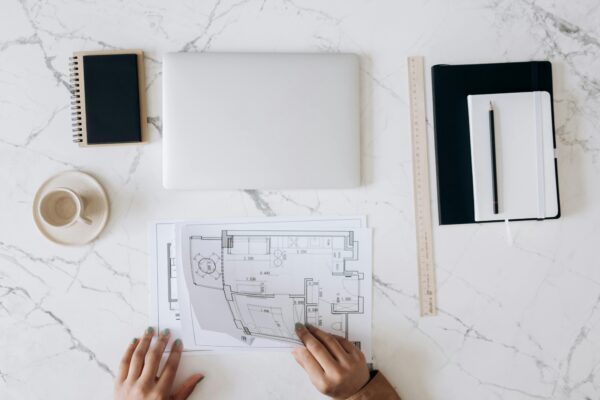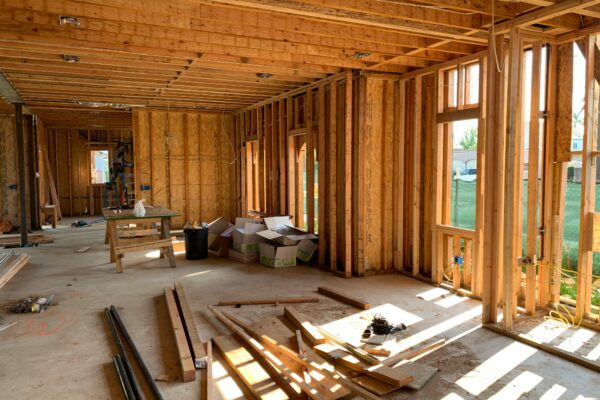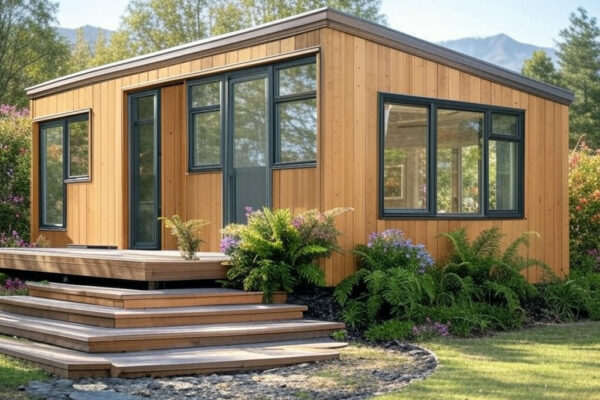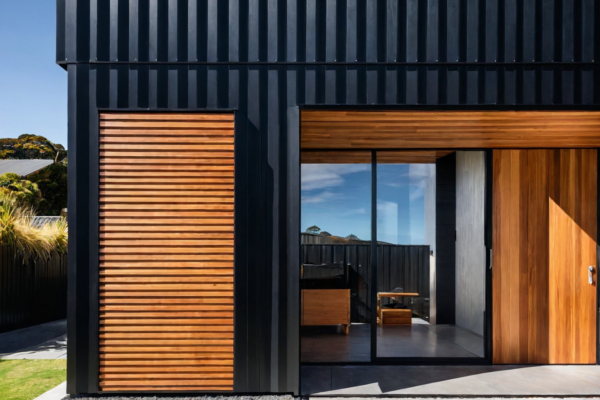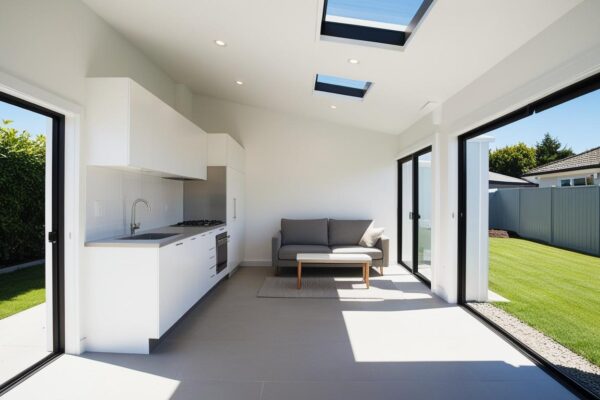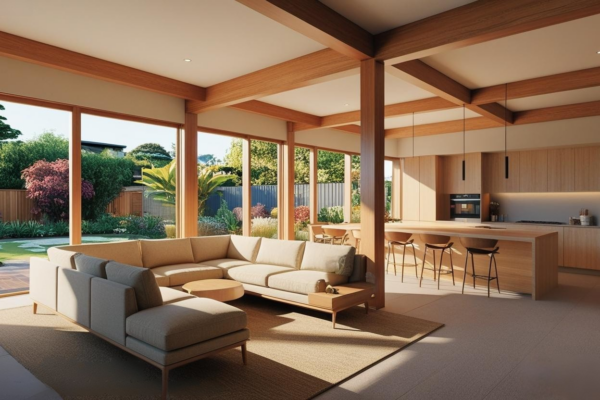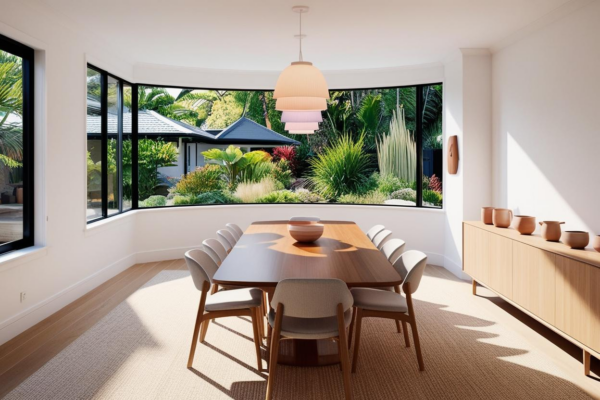What Are Building Consents? A Comprehensive 2025 Guide for New Zealand
Kickstart your building project with confidence! At Sonder Architects, we empower you to navigate the world of building consents in New Zealand for 2025. Whether you’re planning a stunning new build, a transformative renovation, or an extension to your Auckland home, understanding building consents is your first step to a safe, legal, and successful project. Building consents ensure your construction meets the New Zealand Building Code, keeping your property durable, healthy, and secure for everyone who uses it. But what exactly are building consents, and how do they differ from resource consents? Why do you need them for renovations or new builds?

In this guide, we break down everything you need to know about building consents for 2025. We cover the process, costs, exemptions, and how resource consents fit in—all tailored for New Zealanders. With recent 2024 reforms streamlining minor changes and saving homeowners millions, staying updated is key. Trust Sonder Architects to guide you through each stage, from planning to completion, so your dream project thrives. Ready to dive in? Let’s explore what building consents are and why they matter!
What Are Building Consents and Why Do You Need Them?
Start your project right by understanding building consents! In New Zealand, a building consent is a formal approval from your local council, confirming that your construction plans—whether for new builds, renovations, or extensions—comply with the New Zealand Building Code (NZBC). Administered under the Building Act 2004, building consents ensure your project meets standards for safety, structural integrity, fire protection, accessibility, and health. Think of it as your green light to build, protecting you, your family, and future owners from risks like leaks, collapses, or unsafe wiring.
Why do building consents matter in 2025? They safeguard your investment and keep you compliant with NZ laws. For new builds, building consents cover everything from foundations to roofing, ensuring durability in our unique climate—think earthquakes, wind, and rain. For renovations, building consents for renovations apply to structural changes, plumbing, or electrical work, preventing costly fixes later. Without a consent, you risk fines, delays, or even demolition orders from councils like Auckland Council. Plus, unconsented work can void insurance or complicate property sales.
The process ties into resource consents too. While building consents focus on the “how” of construction, resource consents, governed by the Resource Management Act 1991, address the “where” and “what”—like land use, environmental impact, or zoning. Some projects need both! In 2025, recent reforms from 2024 streamline minor works, exempting low-risk projects to save time and money, but most substantial builds still require approval.
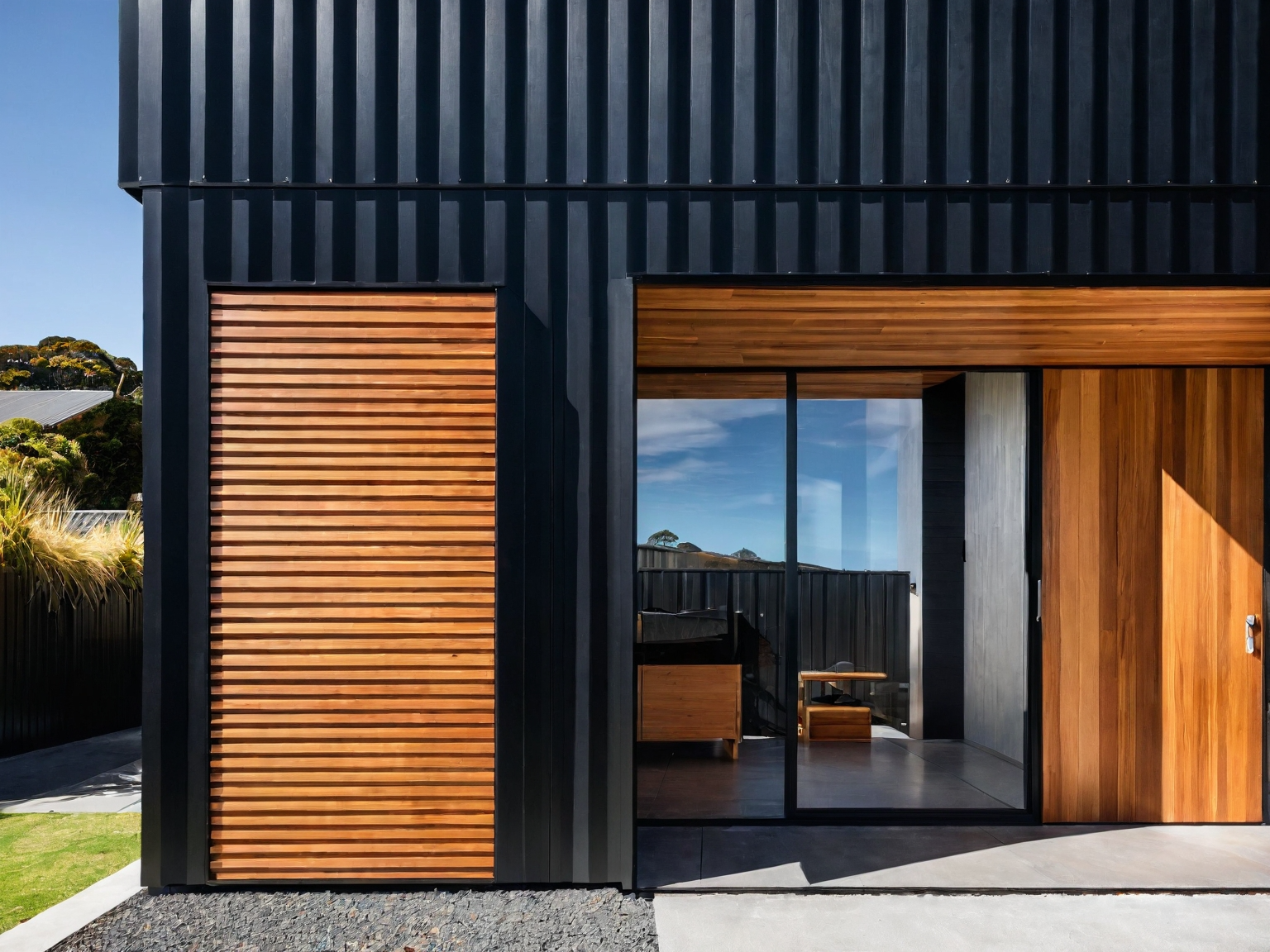
Types of Building Consents in New Zealand
Dive into the specifics! In New Zealand, building consents vary depending on your project’s scope. Whether you’re erecting a new home or revamping an existing space, Sonder Architects helps you identify the right consent. Below, we outline the main types of building consents and related approvals, ensuring your 2025 project aligns with NZ regulations.
Key Types of Building Consents
- Building Consents for New Builds: Launch a new home or commercial structure! These consents cover full construction—from foundations, framing, and roofing to plumbing and electrical systems. They ensure compliance with the New Zealand Building Code, addressing safety, durability, and energy efficiency for NZ’s unique conditions.
- Building Consents for Renovations: Transform your space with confidence! Apply for these consents when altering structures, like removing walls, adding rooms, or upgrading plumbing and wiring. In 2025, even small changes may need approval if they impact safety or the NZBC.
- Building Consents for Additions: Expand your property! These cover extensions like new decks, garages, or extra stories, ensuring structural integrity and code compliance.
- Exempt Building Work: Save time on minor projects! Under the Building Act 2004 and 2024 reforms, low-risk work—like garden sheds under 30 square meters, minor repairs, or fences—may not need a consent. Check Schedule 1 on building.govt.nz for the latest exemptions.
- Code Compliance Certificate (CCC): Finish strong! After your consented work passes final inspection, councils issue a CCC, proving your build or renovation meets the NZBC. It’s critical for insurance and resale.
Resource Consents and Building Consents
Don’t confuse the two! Resource consents, managed under the Resource Management Act 1991, tackle environmental and zoning impacts—think land use, subdivision, or effects on water or heritage. Building consents focus on construction standards. For example, a new build in Auckland might need a resource consent for site coverage and a building consent for structural safety. Sonder Architects coordinates both to streamline your 2025 project!
Differences Between Consents in New Zealand
Compare your options! This table breaks down building and related consents for clarity.
| Consent Type | Purpose |
| Building Consent (New Builds) | Approves construction of new homes or buildings per NZBC |
| Building Consent (Renovations) | Covers structural, plumbing, or electrical changes in renovations |
| Building Consent (Additions) | Authorizes extensions like decks or extra rooms |
| Resource Consent | Permits land use, subdivision, or environmental impacts |
The Building Consent Process in New Zealand for 2025
Take charge of your project! Applying for building consents in New Zealand ensures your construction complies with the New Zealand Building Code (NZBC). Whether you’re pursuing building consents for new builds or building consents for renovations, the process, managed by local councils like Auckland Council, follows clear steps in 2025. Sonder Architects walks you through each stage to keep your project smooth and stress-free.
Step-by-Step Guide to Building Consents
- Assess Your Project: Start by defining your scope! Determine if your new build, renovation, or addition needs a building consent. Check building.govt.nz for exemptions—minor works like small sheds or repairs might skip this step.
- Prepare Your Plans: Get detailed! Submit architectural drawings, specifications, and engineering reports showing compliance with the NZBC. For building consents for renovations, include existing and proposed layouts. For new builds, cover foundations, structure, and services.
- Submit Your Application: Act fast! Lodge your building consent application with your local council, either online or in person. Auckland Council, for example, offers a digital portal in 2025 for efficiency. Include plans, a project information memorandum (PIM) if needed, and fees.
- Council Review: Stay patient! Councils assess your plans for safety, structural integrity, and code compliance. This takes 20 working days typically, but 2024 reforms speed up low-risk projects in 2025—check with your council for updates.
- Address Feedback: Respond quickly! If councils request changes or more info, work with Sonder Architects to refine plans and resubmit promptly to avoid delays.
- Receive Approval: Celebrate progress! Once approved, your building consent arrives, outlining conditions. You must start work within 12 months or the consent lapses.
- Build and Inspect: Keep moving! Construct as per approved plans. Councils inspect at key stages—foundation, framing, plumbing, and final—for building consents for new builds and renovations. Book inspections via your council.
- Obtain a Code Compliance Certificate (CCC): Wrap it up! After passing the final inspection, request your CCC to confirm your project meets the NZBC. This seals your compliance for insurance and resale.
Costs and Timelines
Expect to budget! Building consent fees vary by council and project size—think $1,000 to $10,000 or more for complex new builds, per building.govt.nz. Additional costs include PIMs, levies (Building Research Levy, MBIE Levy), and design fees. Processing takes 20 working days, but complex projects or resource consent overlaps can extend this. In 2025, streamlined processes for minor works cut delays—perfect for renovations!
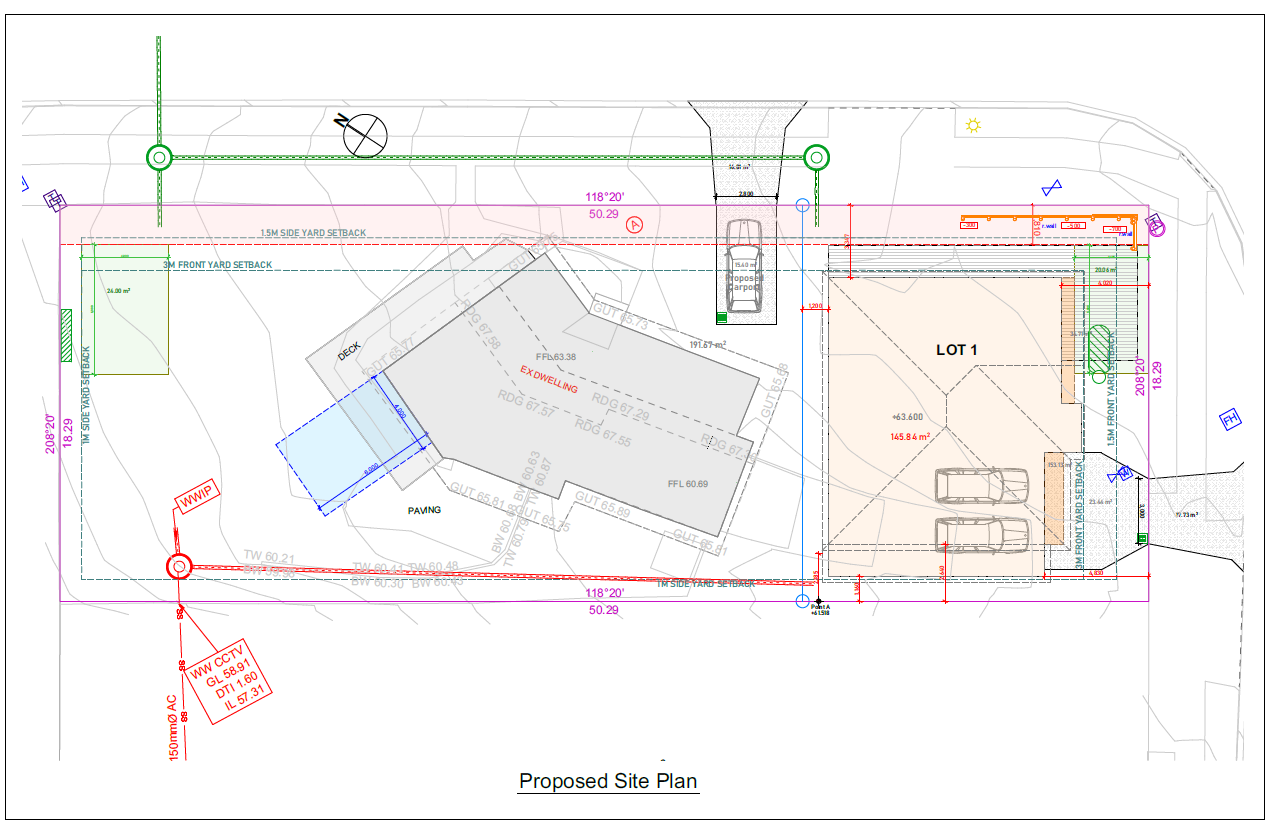
Example of a site where an existing property is being subdivided, and a new dwelling is to be built.
Resource Consents: How They Relate to Building Consents
Unlock the full picture! In New Zealand, building consents ensure your construction meets the New Zealand Building Code, but resource consents play a critical role too. Governed by the Resource Management Act 1991 (RMA), resource consents address how your project impacts the environment, land use, and community. Sonder Architects clarifies how these consents intertwine for your 2025 project, ensuring you cover all bases.
What Are Resource Consents?
Take control of your site! Resource consents, issued by local or regional councils, approve activities affecting land, water, air, or zoning. Need to subdivide a property? Build near a waterway? Exceed height or site coverage rules in Auckland? Resource consents tackle these, focusing on sustainability and compliance with district or regional plans. In 2025, councils like Auckland Council enforce updated plans, reflecting environmental priorities and urban growth.
Types of Resource Consents
Know your options! Here’s what you might need:
- Land Use Consent: Build or use land differently—think new homes in restricted zones or commercial use in residential areas.
- Subdivision Consent: Split your property! Divide land into lots, ensuring services like water and access align with council rules.
- Water Consent: Manage water wisely! Covers taking, using, or diverting water, vital for rural builds or landscaping.
- Discharge Consent: Protect the environment! Permits wastewater or stormwater discharge, common for new builds.
- Coastal Consent: Guard our shores! Required for projects in coastal areas, like docks or seawalls.
Building Consents vs. Resource Consents
Spot the difference! Building consents green-light your construction’s “how”—structure, safety, and systems per the NZBC. Resource consents approve the “what” and “where”—land use, environmental effects, and zoning. For example, a new build might need a building consent for framing and plumbing, plus a resource consent for exceeding site density. Some projects demand both! In 2025, reforms streamline overlaps, but councils still review separately or jointly, depending on complexity.
The Process and Costs
Act decisively! Apply for resource consents via your council—submit plans, an Assessment of Environmental Effects (AEE), and fees. Processing takes 20-60 working days, longer if public notification or hearings occur. Costs vary—$1,000 for simple land use to $10,000+ for complex subdivisions, per Auckland Council guidelines. Delays happen if building consents and resource consents aren’t synced, so plan both early.
Exemptions, Tips, and Common Challenges for Building Consents
Navigate smarter! Not every project in New Zealand requires building consents, and knowing exemptions, strategies, and pitfalls saves you time and stress. Sonder Architects equips you for 2025, whether you’re tackling building consents for new builds, building consents for renovations, or dodging common hurdles. Here’s how to master the process!
Exemptions for Building Work
Save effort on small jobs! The Building Act 2004, updated with 2024 reforms, lists exempt work in Schedule 1 on building.govt.nz. In 2025, these don’t need building consents:
- Minor Structures: Build sheds, carports, or verandas under 30 square meters, no plumbing or structural risk.
- Repairs and Maintenance: Fix walls, replace cladding, or repaint—keep it like-for-like with no structural change.
- Fences and Walls: Erect low fences (up to 2.5 meters) or garden walls, per council rules.
- Small Plumbing: Install a garden tap or repair a pipe, if a licensed pro handles it. Check your council—Auckland Council may tweak rules! Exemptions cut costs, but misjudge it, and you’ll face fines or redo work.
Common Challenges and How to Overcome Them
Steer clear of roadblocks! Building consents trip up many, but you can succeed:
- Incomplete Plans: Councils reject vague drawings. Partner with Sonder Architects to submit detailed, NZBC-compliant plans for new builds or renovations.
- Delays in Processing: 20 working days stretch if issues arise. Lodge early, and we’ll track progress with your council in 2025.
- Cost Overruns: Fees, levies, and fixes add up. Budget extra—$1,000-$10,000 varies by scope—and we’ll estimate accurately.
- Resource Consent Overlaps: Zoning or environmental snags delay building consents. Sync both with our help for a smooth ride.
- Failed Inspections: Non-compliant work halts progress. Build to plan, and we’ll prep you for council checks.
Practical Tips for Success
Power up your project! Boost your building consents for renovations or new builds with these:
- Plan Early: Start months ahead! Design with Sonder Architects to nail NZBC standards and council rules.
- Hire Pros: Use licensed builders and architects. We coordinate experts for quality and compliance in 2025.
- Communicate: Talk to your council—e.g., Auckland Council—often. We’ll guide queries to speed approval.
- Document Everything: Keep plans, permits, and inspection records. It proves compliance for your CCC and resale.
- Stay Updated: Rules shift! Check building.govt.nz for 2025 changes—reforms ease minor works but tighten safety.
Wrapping Up…
Build with confidence in 2025! Understanding building consents empowers you to launch your New Zealand project—whether a bold new build, a clever renovation, or an extension—safely and legally. Sonder Architects demystifies the process, from securing building consents for new builds and renovations to pairing them with resource consents for a seamless start. With 2024 reforms easing minor works and strict NZBC standards protecting your investment, now’s the time to act. Avoid delays, fines, or uninsurable work—master exemptions, plan early, and tackle challenges head-on! Trust Sonder Architects to craft precise plans, navigate council rules, and bring your vision to life in 2025. Ready to start? Contact us today and let’s create something extraordinary together in New Zealand!
What are building consents?
Building consents are council approvals ensuring your construction—new builds, renovations, or additions—meets the New Zealand Building Code for safety, durability, and health.
Do I need building consents for renovations?
Yes, if structural, plumbing, or electrical changes occur! Building consents for renovations cover wall removals, room additions, or system upgrades in 2025.
Are building consents for new builds different?
Not in process! Building consents for new builds approve full construction—foundations to roofing—ensuring NZBC compliance, tailored to your 2025 project.
What’s the difference between building consents and resource consents?
Building consents focus on construction standards; resource consents, under the RMA 1991, permit land use, subdivision, or environmental impacts.
Can I skip a building consent?
Sometimes! Minor work—like sheds under 30 square meters or repairs—may be exempt per Schedule 1. Check building.govt.nz or with Sonder Architects for 2025 rules.
How long does a building consent take?
Typically 20 working days! Complex projects or resource consent overlaps may extend this, but 2024 reforms speed minor works in 2025.
What does a building consent cost?
Fees vary—$1,000 to $10,000+—depending on project size and council, like Auckland Council. Add levies and design costs too.






